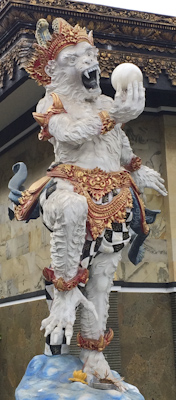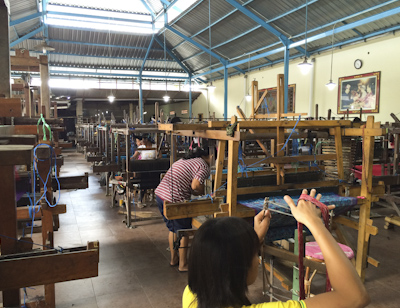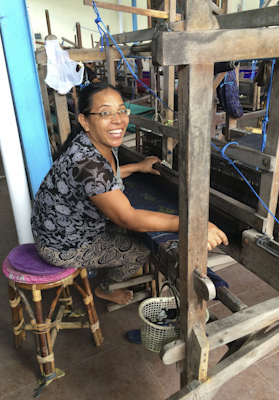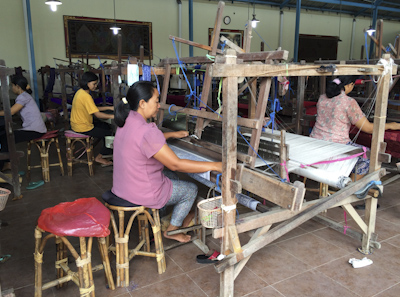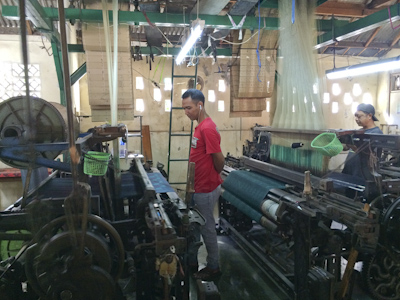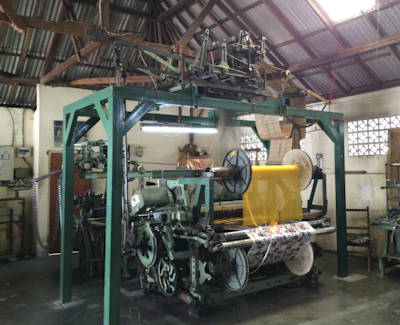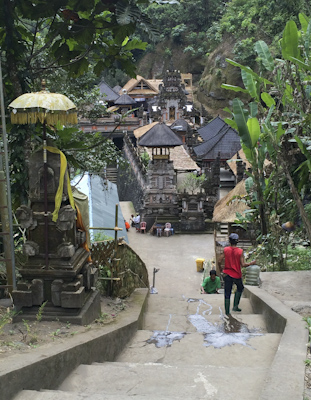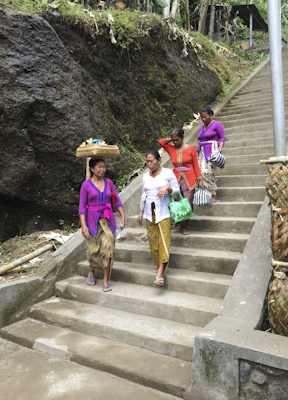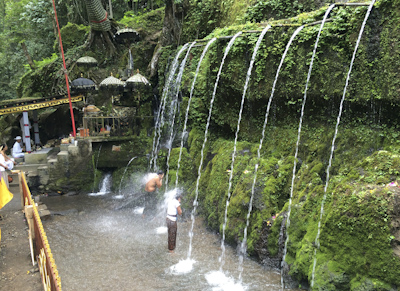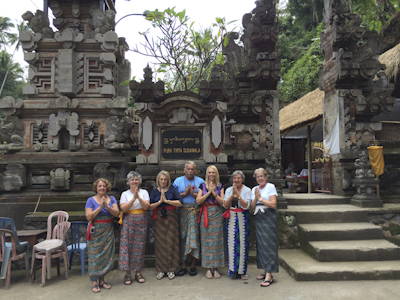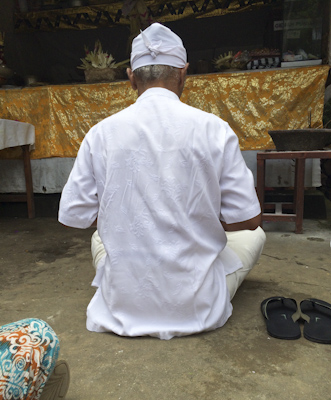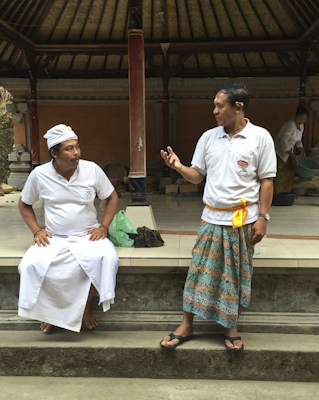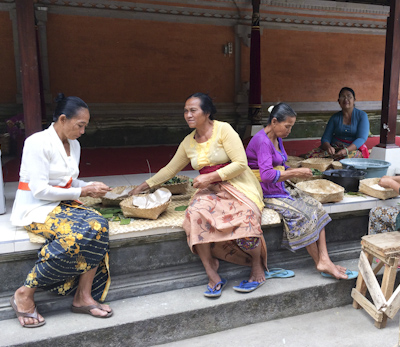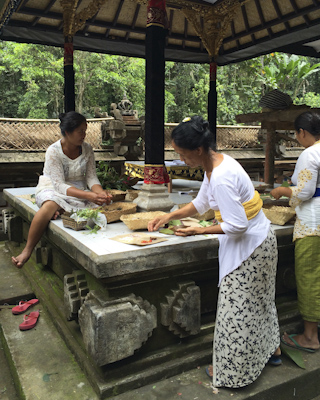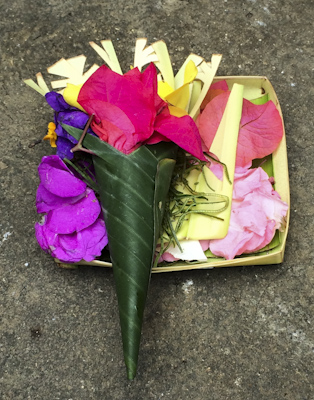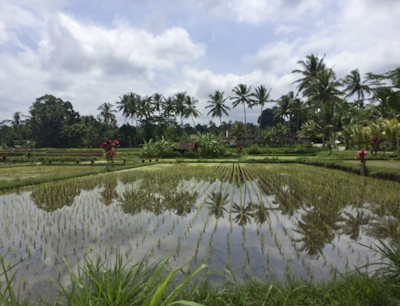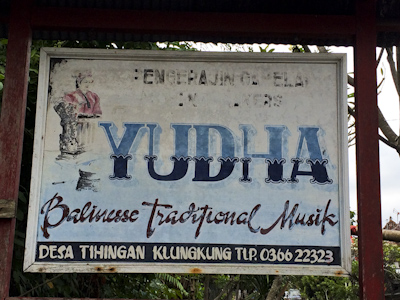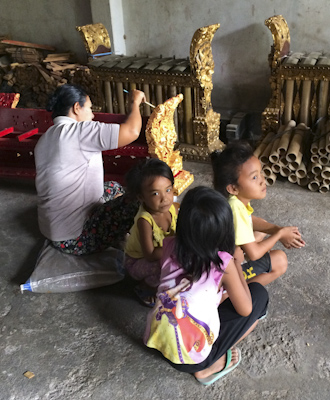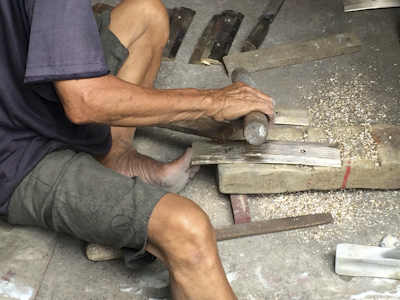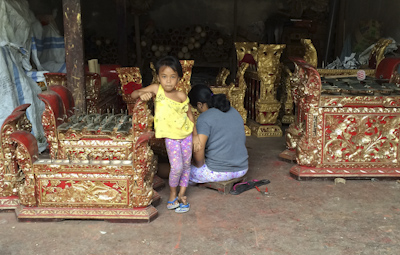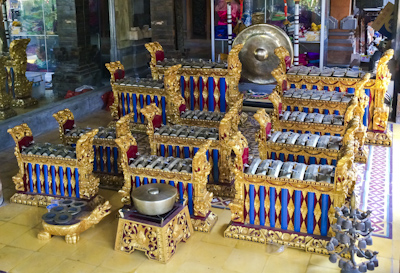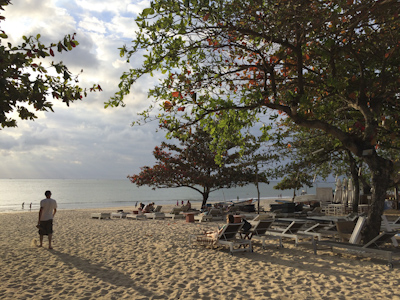Thursday – August 27, 2015
On the way to the purification ceremony, we stopped at a weaving factory where rows of women were hand weaving beautiful cloth.
Wealthy Indonesians purchase cloth from this company. The weavers acknowledged us with smiles but didn’t miss a stitch.
Further within the factory there was another open-air building where several men were operating mechanical weaving machines. In another section, several people were spinning thread onto large spools.
Bali is often referred to as the island of “holy water” because of the countless number of sacred springs. As one of the five essential elements, water represents the flow of energy (chi) connected with emotion and intuition.
We drove to the purification temple and climbed down the steep steps to the river bank. Balinese water blessings are called Melukat and people believe the purification ceremony cleanses our bodies physically, emotionally, and spiritually.
Jumena gave us water sarongs to wear and we stored our clothes in lockers. We stepped into the shallow river and took our places in front of the temple priest. We were given incense and a small palm tray of offering flowers. We followed the sequence of prayers with appropriate flowers and the priest gave us holy water to receive, all the while he chanted mantras in ancient Sanskrit.
Then we were invited to stand under the holy water fountains. I regret not having more photos, but I decided to participate in the purification ceremony rather than record it with my camera.
We changed into dry sarongs and went into the temple compound to receive more blessings from the priest. We sat on the ground while he chanted and blessed us.
Later, the priest joined us outside the temple and, with Jumena translating, we asked questions and thanked him for allowing us to visit the temple.
Within another section of the compound, women were gathered and created offerings:
After our purification, the group was relatively quiet as we passed rice fields on our way back to Jimbaran.
Jumena must be familiar with every inch of Bali because he continued to find interesting places to stop along the road. The bus rolled slowly through a village and Jumena said the town was famous for manufacturing gamelans. How could we pass up this sign?!
We had been hearing gamelans everywhere! These are the percussion instruments which create the essentials of Indonesian traditional music and were developed during the 13th century. The ensemble usually includes several different sizes and varieties of metallophones, hand drums, gongs, bells, and larger drums.
In a small back room, a man in his 70s was hand-scraping layers of metal from a bronze bars. He held the bar steady with his left foot as he scraped the surface. After a few minutes, he tapped the bar to test the tone and compared it to sound of another bar on the ground.
He told Jumena he had been doing this sort of work since he was six years old. He set the finished bars on the ground next to him in tonal order.
A complete ensemble of gamelan instruments:
Visiting the gamelan factory was one of the highlights of the trip for me. What a unique experience! Thank you Jumena.
